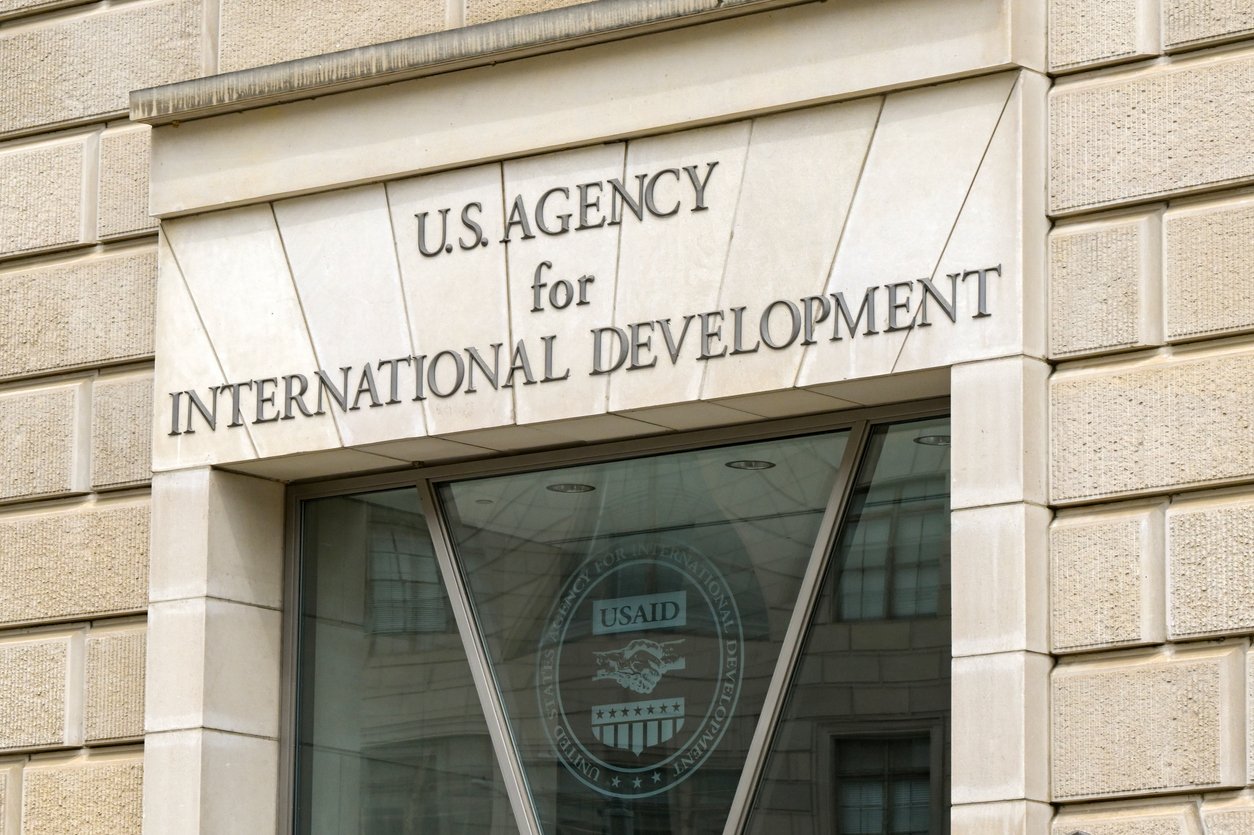USAID - the American Agency for International Development was the biggest humanitarian support agency in the world. With a staff of 10,000 professionals and two-thirds working on the ground across the globe, USAID distributed more than 20 Billion US$ in funding per year to local humanitarian organizations and programs, mostly in developing countries, but also in disaster areas and war-torn countries. It was often the main funder of most of the programs and organizations it supported and has been instrumental in fighting the spread of diseases like HIV, promoting children's education, giving access to drinkable water, protecting women's rights, promoting disaster relief, vaccine distribution, and grassroots economic development initiatives.
The decision of the Trump Administration at the end of January to freeze without notice all USAID payments pending a 90-day program review while at the same time closing down the website of the organization and taking control of its IT infrastructure is irresponsible and illegal. A week after, the Trump Administration placed almost all its employees on forced leave, while announcing the recall of thousands of staff members abroad within a month, making USAID unable to function. This means that the announced funding reviews will be done by people with little knowledge of local conditions and no context for the specific situation of the humanitarian programs. There were public denouncements that money was being given to the Taliban in Afghanistan! Yes, it was, as part of a long-negotiated agreement to allow girls to go to school beyond primary education. Another denouncement was the funding of condom use in Africa! – yes, as an important component of programs to stop the spread of HIV in a global fight against an awful epidemic that Humanity has been winning in the last decade due to coordinated global policies.
This irresponsible decision of the Trump Administration had a chilling effect on the global humanitarian system since it forced the interruption of most of the programs it supported, the recall of on-the-ground employees, and stopped the distribution of food, water, and medication. Most of the funded organizations had to either stop work entirely or scale down operations and suspend contracts as they faced bankruptcy due to a sudden shortage of funding despite their signed contracts with USAID. Even money already transferred to these organizations could not be spent due to the stop-work order and the danger of reprisals by the Trump Administration. Naturally, the American government has the right to decide to scale down its humanitarian support budget. What it has no right to do is to force that to happen suddenly, with no warning and no respect for signed contracts, causing immense damage to its own staff, to the humanitarian programs it supported, and to the final beneficiaries. It should be noted that many of the programs are long-term and also supported by other funding agencies, so these actions represent an immense waste of humanitarian investments and capabilities.
Even though some of the initial measures of the Trump Administration were relaxed after a few days, allowing the continuation of emergency food delivery, these actions have already caused great damage to the world's humanitarian system. Many of the most severe consequences will be felt over time as diseases spread faster, educational systems falter, agricultural projects are stopped, famine increases, and disaster relief actions become less effective, leading to a higher likelihood of political tensions in the developing world.
This is a humanitarian and political calamity of a scale that few people realize. And why is there not a louder outcry and wave of protests in the humanitarian sector? Due to FEAR! Everyone knows that a vindictive Trump Administration will purposefully hurt any NGO or humanitarian organization that speaks loudly about what is happening. This is, unfortunately, the new world order that we now live in – the Trump Administration is shifting the United States from being the "indispensable nation" to becoming the self-interested and vindictive country that does not respect its own laws and contracts and does not adhere to universal values of human rights and justice.
Given the scale and potential impact of the crisis, this is a time for decisive and responsible leadership. The European Union should take action by stepping up its humanitarian support and demonstrating global leadership. The DG ECHO is the department of the European Commission responsible for Civic Protection and Humanitarian Aid Operations. With a budget of over 2 Billion euros, it has 30 years of experience in humanitarian support and works alongside USAID in many programs. Its officials know the most critical projects and the trustworthy local partners. The European Commission should announce immediately that, in light of the crisis and funding gap in the global humanitarian system caused by the suspension of funding from USAID, it will implement an emergency increase in its humanitarian funding operations by setting up a new fund called EUROPEAID - an emergency philanthropic financial vehicle - and committing an initial 1 Billion euros to it. It should also set up a task force to manage this fund and evaluate emergency funding requests from humanitarian organizations to ensure the continuity of the most critical programs. This humanitarian support initiative should ideally be led by a well-known former European politician and humanitarian leader working in close coordination with the DG ECHO.
This action should be coordinated with the most important European donor countries, which would also contribute to this emergency fund and assign some of their staff to the task force. Alternatively, they could announce an increase of their own humanitarian budget to finance some of the shortfall funding in critical programs and coordinate its disbursal with EUROPEAID, a move that developed countries outside Europe, such as Canada, Australia, South Korea, and Japan could also emulate.
The European Commission should also immediately make a call to global foundations, corporations, and wealthy individuals to contribute to this emergency fund so that the immediate effects of this humanitarian disaster are mitigated. Large foundations - such as the Gates Foundation, which already allocates several billion to humanitarian aid - and well-known billionaires such as Warren Buffet are likely to heed the call, alongside contributions of large foundations and corporations worldwide.
EUROPEAID would obviously require additional staff with expertise in humanitarian support and local development. Ironically, several thousand humanitarian experts are likely to be available in the global labor market, being laid off by USAID or on extended leave and disillusioned. Some of these capable and experienced humanitarian officers could be hired by EUROPEAID and by global foundations willing to take the lead, which would also help to reduce the draining of valuable competencies and expertise from the humanitarian system.
These actions by the European Union and global philanthropic leaders would demonstrate decisive and responsible leadership and an ability to react quickly to emergencies. It would likely leverage significant amounts of private and philanthropic funding alongside European Union funding. With time to adapt to the new circumstances, the shock of the sudden withdrawal of USAID will be mitigated. It is also possible that the US Administration in the next few months will soften its approach to dismantling USAID, especially after witnessing some of the immediate consequences of its actions and seeing Europe and other major countries rise to the occasion and unleash a wave of global solidarity.
Unfortunately, the global humanitarian system will scale down significantly at the end of this process, given the major retraction of its main funder, USAID, which represented more than 20% of the total funding. Yet, the difference in consequences between a planned withdrawal and a complete breakdown is enormous. If the United States has stopped providing responsible leadership to the world, the European Union needs to show that it is capable of assuming that leadership with courage, responsibility, and decisiveness. When we see something profoundly wrong, it is our responsibility to act.
Filipe Santos
Dean of CATÓLICA-LISBON
(Part of the regular publications of the Center for Responsible Business & Leadership, here reproduced with permission of the author.)



